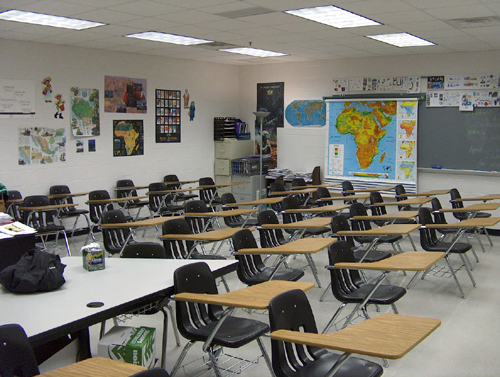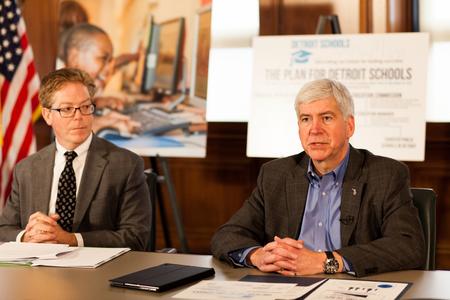K-12 Budget Could Face Challenge Over Aid to Private Schools
The $2.5 million provision reimburses schools for state mandates such as fire drills


Gov. Rick Snyder traveled to a middle school in Oakland County on Monday to sign a $16 billion education budget for the coming fiscal year. He approved it despite questions over a provision that sends money to private and religious schools.
The $2.5 million provision reimburses schools for state mandates such as fire drills. But it could run afoul of a section of the state constitution that says no public money can be used to directly or indirectly support private or parochial schools.
The amendment has been part of the state constitution since 1970, when it was adopted by Michigan voters.
Gov. Snyder said his office is still examining the question.
“There are potentially some legal issues, and we’re still looking at the consequences, and the best way to address some of the legal issues associated with that,” he said. “But at this point, I thought it appropriate to move ahead and let’s address the legal questions separately.”
Supporters of the payments say it’s allowed because the money will not go toward curriculum and education.
But the legislative sponsor also says he hopes this is an initial step toward allowing more state aid for private and religious schools.
“I think we need to let parents decide the best education for their kids regardless of where that is and regardless of what setting that is,” said state Rep. Tim Kelly (R-Saginaw Twp.), who chairs the House education budget subcommittee.
The American Civil Liberties Union is considering a legal challenge. The amendment in the state constitution bans even indirect state aid to private schools.
Here is Article 9, Section 2 of the Michigan Constitution:
The legislature shall maintain and support a system of free public elementary and secondary schools as defined by law. Every school district shall provide for the education of its pupils without discrimination as to religion, creed, race, color or national origin.
No public monies or property shall be appropriated or paid or any public credit utilized, by the legislature or any other political subdivision or agency of the state directly or indirectly to aid or maintain any private, denominational or other nonpublic, pre-elementary, elementary, or secondary school. No payment, credit, tax benefit, exemption or deductions, tuition voucher, subsidy, grant or loan of public monies or property shall be provided, directly or indirectly, to support the attendance of any student or the employment of any person at any such nonpublic school or at any location or institution where instruction is offered in whole or in part to such nonpublic school students. The legislature may provide for the transportation of students to and from any school.”
A proposed amendment to allow state support to private schools in the form of vouchers or tax credits was trounced by Michigan voters by 69 percent to 31 percent in 1999.
